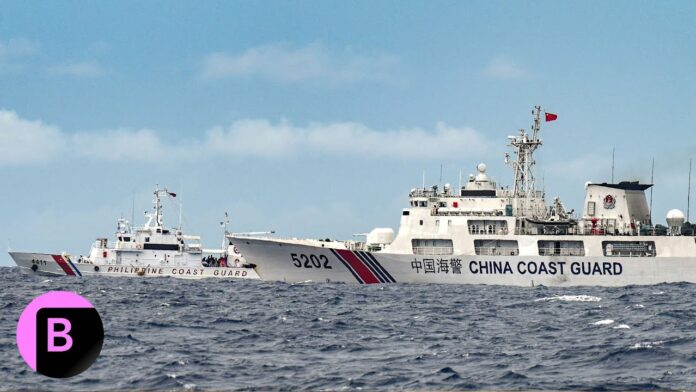China’s media criticized the Philippines after President Marcos Jr. signed a law strengthening maritime rights, heightening tensions over South China Sea claims, highlighting ongoing geopolitical struggles in the region.
Philippines Strengthens Maritime Claims
China’s state-run media have criticized the Philippines following President Ferdinand Marcos Jr.’s signing of a law enhancing the country’s maritime rights. This legislation aims to bolster the Philippines’ claims over the disputed South China Sea waters, intensifying tensions with China as both nations assert territorial claims. The new law underscores the Philippines’ commitment to maritime sovereignty amid Beijing’s pressure, highlighting the ongoing geopolitical struggle in the region.
Rising Tensions in the South China Sea
China swiftly condemned the Philippines’ law, viewing it as an infringement on its sovereignty. Chinese officials reiterated their resolve to assert claims, further escalating tensions over crucial shipping routes and resources. The international community watches intently for a peaceful solution that respects international law and balances regional interests. Developments in the South China Sea hold significant implications for Southeast Asia’s stability and security.
In recent developments that have sparked tensions in Southeast Asia, the Philippines has enacted new legislation that challenges China’s expansive territorial claims in the South China Sea. The legislation, widely seen as a direct assertion of the Philippines’ sovereignty in contested maritime areas, has been met with sharp criticism from Beijing, which accuses Manila of escalating regional disputes.
The legislation reaffirms the Philippines’ rights under international law, particularly the United Nations Convention on the Law of the Sea (UNCLOS), to which both nations are signatories. It also delineates maritime boundaries and reinforces the country’s jurisdiction over its Exclusive Economic Zone (EEZ). This move is in line with the 2016 ruling by the Permanent Court of Arbitration in The Hague, which invalidated China’s sweeping claims under its ‘Nine-Dash Line’. Despite this ruling, China has continued to assert its presence through military installations and patrols, ignoring international outcry and diplomatic pressure.
China’s reaction has been predictably strong, with officials denouncing the legislation as provocative and unfounded. Chinese state media have warned that such actions could destabilize the region, calling for dialogue instead of unilateral legislative measures. The strong rhetoric underscores Beijing’s insistence on bilateral negotiations as opposed to multilateral or legal resolutions, a strategy that has often allowed it to leverage its economic and military influence over smaller nations.
Analysts suggest that the Philippine legislation is not only a legal assertion but also a geopolitical signal. Under the leadership of President Ferdinand Marcos Jr., the Philippines appears to be recalibrating its foreign policy to reinforce alliances with the United States and other regional powers like Japan and Australia. The move could potentially encourage other Southeast Asian nations with overlapping claims to take firmer stances against China’s assertiveness, ultimately contributing to greater regional solidarity in upholding international maritime norms. While the path forward remains fraught with challenges, the legislation marks a significant step in the ongoing struggle for maritime rights and regional stability.
Source : Philippines Provokes China’s Anger with New South China Sea Legislation


